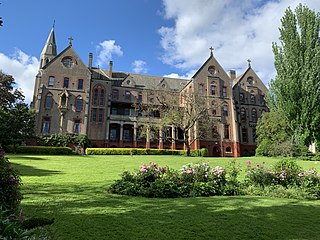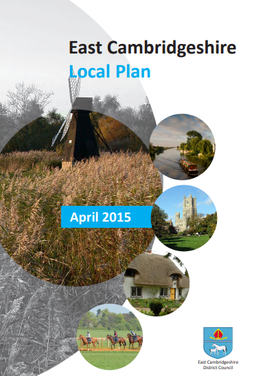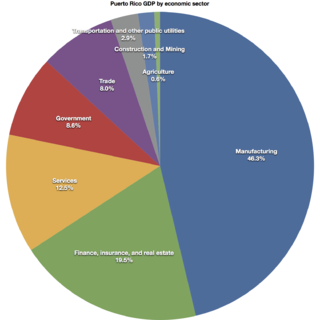
In urban planning, zoning is a method in which a municipality or other tier of government divides land into "zones", each of which has a set of regulations for new development that differs from other zones. Zones may be defined for a single use, they may combine several compatible activities by use, or in the case of form-based zoning, the differing regulations may govern the density, size and shape of allowed buildings whatever their use. The planning rules for each zone determine whether planning permission for a given development may be granted. Zoning may specify a variety of outright and conditional uses of land. It may indicate the size and dimensions of lots that land may be subdivided into, or the form and scale of buildings. These guidelines are set in order to guide urban growth and development.

In the Philippines, regions are administrative divisions that primarily serve to coordinate planning and organize national government services across multiple local government units (LGUs). Most national government offices provide services through their regional branches instead of having direct provincial or city offices. Regional offices are usually but not necessarily located in the city designated as the regional center.

Accessibility is the design of products, devices, services, vehicles, or environments so as to be usable by people with disabilities. The concept of accessible design and practice of accessible development ensures both "direct access" and "indirect access" meaning compatibility with a person's assistive technology.

Planning permission in the United Kingdom is the planning permission required in the United Kingdom in order to be allowed to build on land, or change the use of land or buildings. Within the UK the occupier of any land or building will need title to that land or building, but will also need "planning title" or planning permission. Planning title was granted for all pre-existing uses and buildings by the Town and Country Planning Act 1947, which came into effect on 1 July 1948. Since that date any new "development" has required planning permission.
A compulsory purchase order is a legal function in the United Kingdom and Ireland that allows certain bodies to obtain land or property without the consent of the owner. It may be enforced if a proposed development is considered one for public betterment; for example, when building motorways where a landowner does not want to sell. Similarly, if town councils wish to develop a town centre, they may issue compulsory purchase orders. CPOs can also be used to acquire historic buildings in order to preserve them from neglect.
Town and country planning in the United Kingdom is the part of English land law which concerns land use planning. Its goal is to ensure sustainable economic development and a better environment. Each country of the United Kingdom has its own planning system that is responsible for town and country planning, which outside of England is devolved to the Northern Ireland Assembly, the Scottish Parliament and the Senedd.

The Victorian Heritage Register (VHR) lists places deemed to be of cultural heritage significance to the State of Victoria, Australia. It has statutory weight under the Heritage Act 2017. The Minister for Planning is the responsible Minister. Heritage Victoria was established as the State Government listing and permit authority in 1995, replacing the original authority, the Historic Buildings Preservation Council, established in 1974. Listing on the Victorian Heritage Register is separate from listing by a local Council or Shire, known as a Heritage Overlay. Heritage Victoria is currently part of the Department of Environment, Land, Water and Planning of the Government of Victoria, Australia. Heritage Victoria reports to the Heritage Council who approve recommendations to the Register and hear appeals when a registration is disputed. The council also hears appeals by an owner to a permit issued by Heritage Victoria. As of 2021, there are over 2,400 places and objects listed on the VHR.

The Ontario Heritage Act, first enacted on March 5, 1975, allows municipalities and the provincial government to designate individual properties and districts in the Canadian Province of Ontario, as being of cultural heritage value or interest.

The Town and Country Planning Act 1990 is an act of the Parliament of the United Kingdom regulating the development of land in England and Wales. It is a central part of English land law in that it concerns town and country planning in the United Kingdom. Repealed in parts by the Planning and Compensation Act 1991, it is now also complemented by the Planning and Compulsory Purchase Act 2004.

The California Coastal Commission (CCC) is a state agency within the California Natural Resources Agency with quasi-judicial control of land and public access along the state's 1,100 miles (1,800 km) of coastline. Its mission as defined in the California Coastal Act is "to protect, conserve, restore, and enhance the environment of the California coastline".

The Planning Inspectorate for England is an executive agency of the Department for Levelling Up, Housing and Communities of the United Kingdom Government with responsibility for making decisions and providing recommendations and advice on a range of land use planning-related issues across England. The Planning Inspectorate deals with planning appeals, nationally significant infrastructure projects, planning permission, examinations of Local Plans and other planning-related and specialist casework.

A development plan sets out a local authority's policies and proposals for land use in their area. The term is usually used in the United Kingdom. A local plan is one type of development plan. The development plan guides and shapes day-to-day decisions as to whether or not planning permission should be granted, under the system known as development control. In order to ensure that these decisions are rational and consistent, they must be considered against the development plan adopted by the authority, after public consultation and having proper regard for other material factors.
Development Management, formerly known as planning control, or development control, is the element of the United Kingdom's system of town and country planning through which local government or the Secretary of State, regulates land use and new building, i.e. development. It relies on a "plan-led system" whereby development plans are produced, involving various stages of public consultation prior to being adopted. Subsequently, development that requires planning permission, which is granted or refused with reference to the development plan as the starting point, then other material considerations are taken into account. The term "development management" is often abbreviated to DM.

The Town and Country Planning (England) Order 2015 is a statutory instrument, applying in England, that grants planning permission for certain types of development without the requirement for approval from the local planning authority.

The Town and Country Planning Order 1987 is a Statutory Instrument, applying in England and Wales, that specifies various "Use Classes" for which planning permission is not required for a building or other land to change from one use within that class to another use within that same class. The UCO 1987 was made by the Secretary of State under authority granted by sections 22 and 287 of the Town and Country Planning Act 1971, which have subsequently been replaced by sections 55 and 333 of the Town and Country Planning Act 1990.
Planning law or town and country planning is the system by which the British government seeks to maintain a balance between economic development and environmental quality in England. The primary legislation for this field of law is provided by the Town and Country Planning Act 1947 and the Town and Country Planning Act 1990.
In the United Kingdom, statutory undertakers are the various companies and agencies given general licence to carry out certain development and highways works.

The Clean Air Act (CAA) is the United States' primary federal air quality law, intended to reduce and control air pollution nationwide. Initially enacted in 1963 and amended many times since, it is one of the United States' first and most influential modern environmental laws.

As of 2012, the real estate industry in Puerto Rico constituted about 14.8% of the gross domestic product of Puerto Rico, about 1% of all of the employee compensation on the island and, together with finance and insurance (FIRE), about 3.7% of all the employment on the jurisdiction.
The OTC Exchange Of India (OTCEI), also known as the Over-the-Counter Exchange of India, was based in Mumbai, Maharashtra. It is under the ownership of Ministry of Finance, Government of India. It is India's first exchange for small companies, as well as the first screen-based nationwide stock exchange in India. OTCEI was set up to access high-technology enterprising promoters in raising finance for new product development in a cost-effective manner and to provide a transparent and efficient trading system to investors.













